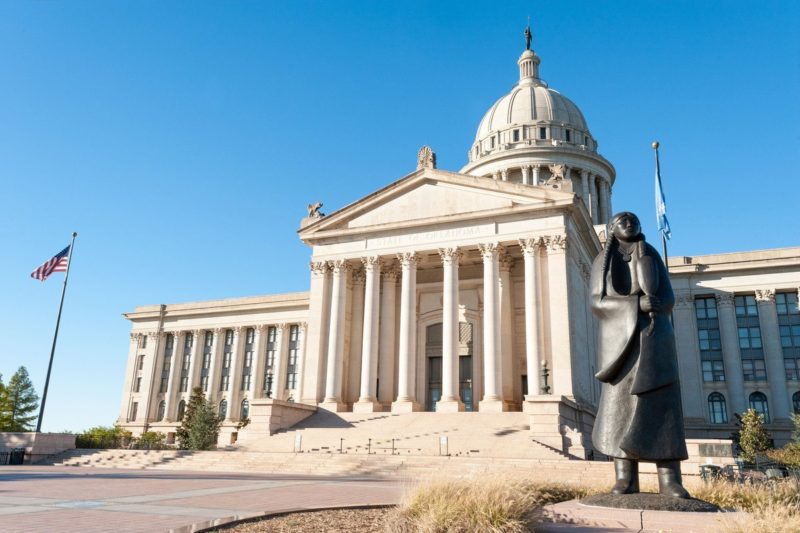Ballot Effort to Criminalize Abortion Care Ends in Oklahoma
The Oklahoma Supreme Court on Tuesday struck down a petition pushing for a vote on banning abortion care across the state.

The Oklahoma Supreme Court on Tuesday struck down a petition pushing for a vote on banning abortion care across the state.
Thomas Hunter of Norman, Oklahoma filed paperwork on January 27 to launch the signature-gathering campaign for Initiative Petition 406, as reported by the Associated Press.
Hunter would have had 90 days to gather at least 123,725 signatures from registered Oklahoma voters in order for State Question 782 to have appeared on the ballot in November. The initiative would have proposed an amendment to Article 2 of the Oklahoma Constitution to declare that anyone who performs an abortion in the state would be guilty of homicide.
The measure would have also outlawed the use of “contraception that causes the death of an unborn human being.”
“The question is whether or not the Supreme Court ruling that born people have the right to kill unborn people was, in fact, constitutional in the first place,” Hunter told the Tulsa World .
The proposal drew the attention of Democratic presidential candidate Hillary Clinton.
Maya Harris, a Clinton campaign senior adviser, told the Oklahoman that Clinton “believes Oklahoma women have a constitutional right to safe, legal abortion and to contraception, and they deserve to be able to make their health care decisions without interference from government or extreme special interest groups.”
The American Civil Liberties Union (ACLU) of Oklahoma in February challenged the petition on the grounds that outlawing abortion care violates both the U.S. and Oklahoma Constitutions.
“This Court is duty bound by the United States and the Oklahoma Constitution to ‘follow the mandates of the United States Supreme Court on matters of federal constitutional law,’” the Court said in its ruling.
Ryan Kiesel, executive director of ACLU Oklahoma, said in a statement that the proposal would have limited a person’s right to make reproductive decisions, guaranteed by more than four decades of Supreme Court precedent.
“It’s abundantly clear that any measure that interferes with a woman’s reproductive rights, including the legal right to have access to abortion, is unconstitutional,” Kiesel said. “This is the Oklahoma Supreme Court simply reaffirming the very basic principles of federalism and constitutional law.”
